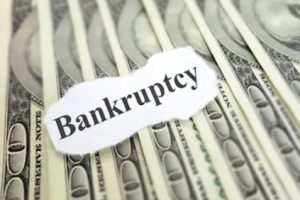Can Bankruptcy Protect My House?

Legally, banks can begin foreclosure proceedings after just one missed payment. Some lenders patiently give borrowers a few months to catch up. But that’s not always the case. In any event, once the foreclosure process starts, it’s almost impossible to stop. Most banks no longer accept partial payments in these situations, so distressed homeowners get deeper and deeper in the hole.
Some of these distressed homeowners file civil actions to stop foreclosure. These actions are usually longshots, at best.
Chapter 13, on the other hand, is different. The relief outlined below is guaranteed under federal law. This relief includes immediate protection for your family and tools to help you stay in the house which has become your home.
The Automatic Stay
Simply stated, Section 362 of the Bankruptcy Code stops foreclosure in its tracks. Homeowners do not need to show anything about fraud or negligence on behalf of the bank. Additionally, it does not matter if the house is scheduled for foreclosure sale that day.
Generally, creditors cannot restart foreclosure proceedings until after the judge closes the bankruptcy. By that time, because of the protected repayment period, the homeowner usually has a zero past-due balance. So, the bank probably has no basis for foreclosure.
Section 362 does not just stop foreclosure. It stops all other forms of creditor adverse action as well, such as wage garnishment, collection lawsuits, and vehicle repossession.
This protection has always been important. But it may be even more important today. Recently, the Supreme Court has watered down some of the consumer protections in the Fair Debt Collection Practices Act. Since some key provisions are no longer in force, bankruptcy might be the only way to stop aggressive collection techniques, such as foreclosure.
Asset Exemption Strategies
Generally, creditors cannot seize a bankruptcy debtor’s house in order to pay debts. Attorneys know how to maximize this exemption.
Illinois joint debtors can exempt up to $30,000 in home equity. There is a difference between fair market value and equity. So, unless the owners have lived in the house for more than ten years, they probably have less than $30,000 in equity, no matter how high their monthly payments are.
The declared value is important. Debtors must list the as-is cash value on Schedule A. Most home investors only offer pennies on the dollar for a no-inspection sale. So, the house’s bankruptcy value might only be a fraction of its fair market value.
A TOTE (tenancy of the entirety) might be an option as well. In Illinois, it is illegal for creditors to seize any asset to satisfy the debt of one co-owner. So, if a home’s deed includes a TOTE, the equity value might be irrelevant.
Kids, don’t try these things at home. Always speak to an experienced attorney before making any such moves, because they are not available in all cases.
Repayment Options
Bankruptcy does not just stop adverse action and protect your home from creditor seizure. In many cases, Chapter 13 also makes the home more affordable in the long term.
Lien stripping, which might be available if the owners are underwater, is a good example. Assume the Browns used an 80/20 mortgage to buy a $200,000. If their home is now worth only $160,000, a judge might designate the $40,000 junior mortgage as an unsecured debt. If that’s the case, the junior lien is dischargeable in bankruptcy.
A cram-down might be available as well. As mentioned, Chapter 13 includes a protected repayment period which lasts up to five years. If the owners pay the lender the remaining fair market value of the home in that time period, they might own the house free and clear.
Still other people used balloon notes to buy their houses. Attorneys are excellent negotiators. So, they can often obtain more favorable repayment terms, since the house is under the protection of the bankruptcy court.
Rely on Savvy Lawyers
Chapter 13 might be the answer to secured debt repayment problems. For a free consultation with an experienced Chicago bankruptcy attorney, contact the Bentz Holguin Law Firm, LLC. Convenient payment plans are available.
Resource:
credit.com/debt/understanding-your-foreclosure-rights/


